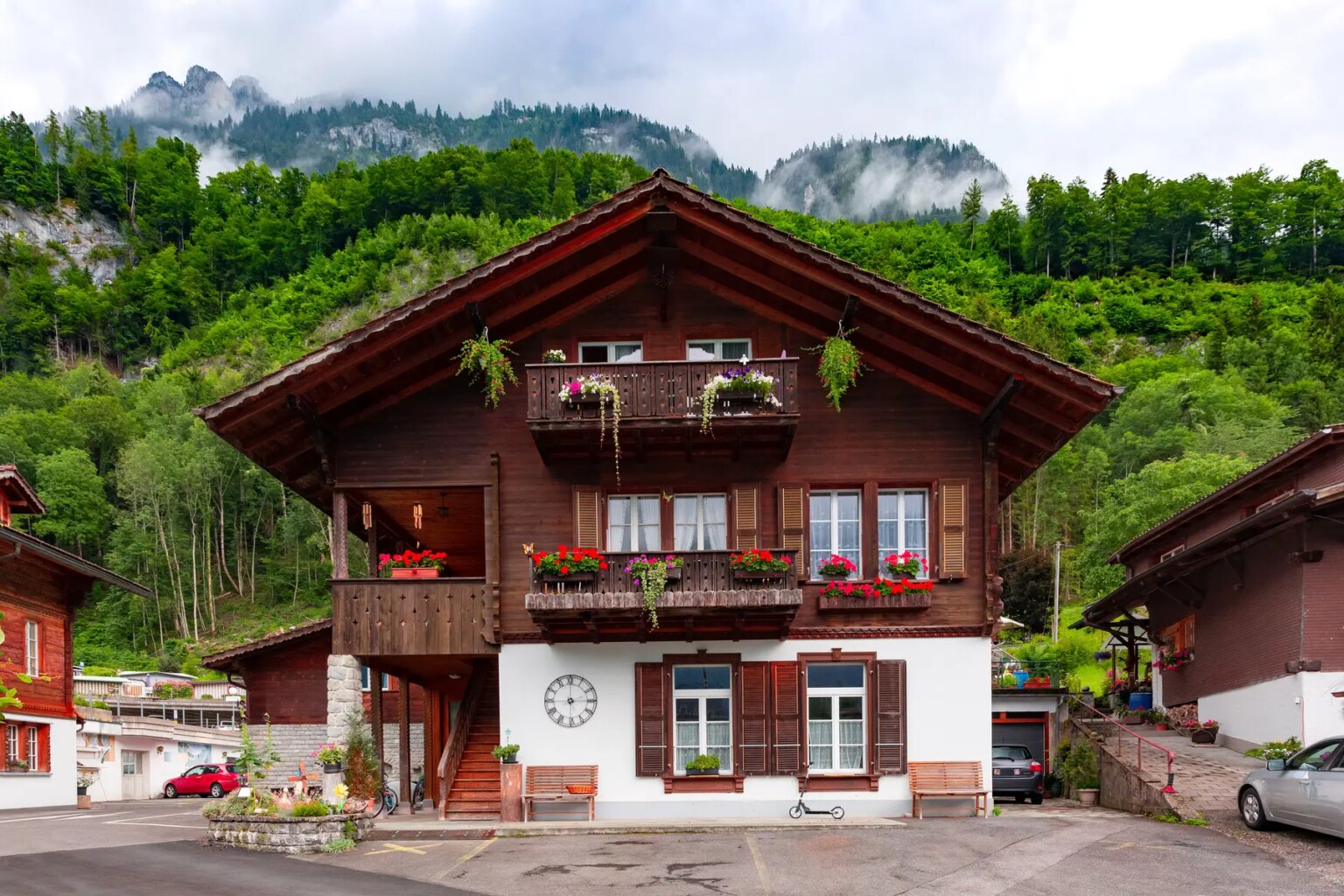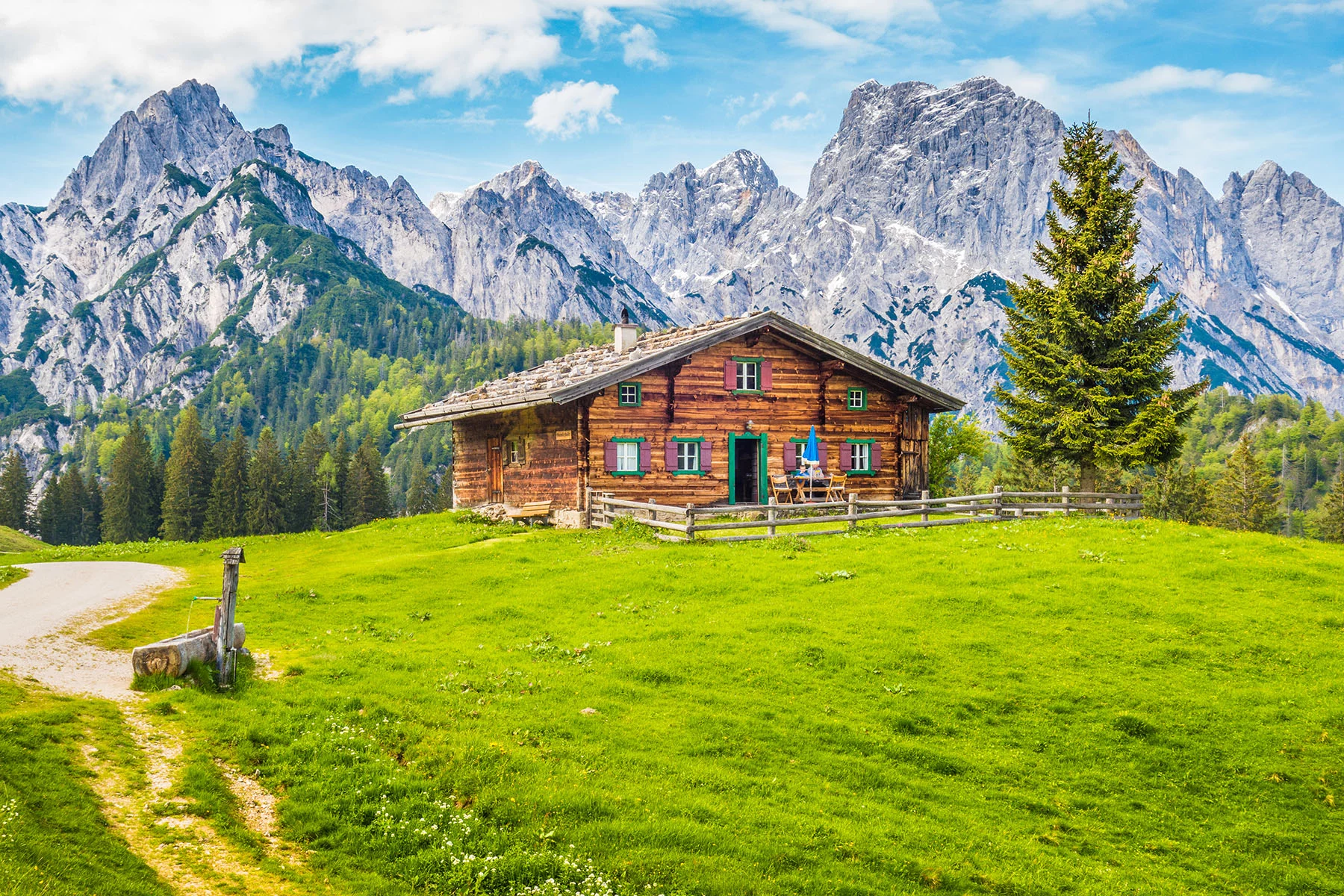Just over 40% of the Swiss population own their own homes, including plenty of expats who have relocated to Switzerland. If you’re a property owner in Switzerland who wants to sell, perhaps due to relocation or because house prices are high, here’s what you need to know.
This guide to selling a home in Switzerland includes sections on:
- The Swiss housing market
- What to do before selling your house in Switzerland
- Getting your property valued in Switzerland
- How to sell your house in Switzerland
- Putting your home on the market in Switzerland
- Hiring a notary when selling Swiss property
- Property viewings in Switzerland
- Accepting an offer when selling your house in Switzerland
- Exchanging contracts and completing the sale
- After selling your house in Switzerland
- Costs of selling a house in Switzerland
- Moving out of your Swiss property
- Gifting a home in Switzerland
- Useful resources
Cosmos Values
Looking to sell your home in Switzerland? Cosmos Values can help it become a reality. Their team of professionals provide a seamless service for expats looking to sell a property in Switzerland, and even buying your new home, from house-hunting to applying for residency. Wherever your Swiss adventure takes you, get there with Cosmos Values.
The Swiss housing market
Switzerland has lower homeownership levels than many other countries. According to EU statistics in 2018, around 42% of Swiss homes were owner-occupied. This compared to an EU average of nearly 70%.
Swiss house prices are currently growing steadily year-on-year, with an annual increase of 4.4% measured in December 2020. Prices vary greatly across Swiss cantons and municipalities. Geneva is the most expensive area for property in Switzerland, while La Chaux-de-Fonds is the cheapest.
What to do before selling your house in Switzerland
Legal requirements
According to the Swiss Code of Obligations, the seller must declare any defects affecting the property value. Failure to do so can result in a hefty compensation claim. Therefore, it’s worth getting a home assessment by a surveyor prior to putting it on the market. This normally forms part of the valuation assessment if you get the property valued professionally.
Other than this, any legal liabilities on behalf of the seller will have to be detailed in the sale contract. Typically in Swiss housing transactions, the seller has no liabilities for the property once the sale has gone through, other than liability for undeclared defects.
You will need to hire a Swiss notary to act on your behalf when you sell a house in Switzerland. However, this isn’t necessary until the point of sale.
Making general improvements
You are not legally obliged to carry out general repairs or renovations on Swiss property before selling it. However, this can be a good idea if you want to increase the property value.
If you’re selling your home with the aim of making a profit, it might be an idea to look into the costs of sprucing the place up against the gains you are likely to make in terms of the asking price.

Whether or not you decide to carry out any professional work on your property before putting it on the market, it’s always worth giving it a general clean and tidy before the sales photos are taken. For example, making sure any gardens attached to the property look nice, giving the window frames a lick of paint if they look tatty, or fixing any dodgy cupboard or wardrobe hinges.
Getting an energy performance certificate
The Swiss energy performance certificate for homes is the Cantonal Energy Certificate for Buildings (CECB; GEAK in German). This shows how energy-efficient your home is, ranking it on a scale from A (highly efficient) to G (poor efficiency).
The CECB is available for all buildings in Switzerland. In some areas, such as the canton of Vaud, it is now mandatory. The benefit of getting a CECB is that it offers the seller more transparency in the sales transaction. A good CECB rating means a better asking price, whereas a poor rating gives the seller the chance to make energy improvements before putting the house on the market.
You can find out more information on the CECB, including how to obtain one, on the official website.
Getting your property valued in Switzerland
Before you can sell, you will need to set a realistic asking price for your Swiss home. This means getting the property accurately valued. There are essentially two ways of doing this:
- Using an online valuation tool: there are plenty of these available, such as the RealAdvisor tool. These are usually free, easy to use, and require just a few basic details such as the address, property size, and age.
- Getting a property expert to value your home: these are usually industry specialists who carry out in-depth analysis using one of the industry valuation methods. For example, market value, real asset value, or hedonic method. This will give you a more detailed analysis of the current value of your home, although you will have to pay a fee (generally around CHF 1,000).
Setting a price
You will need to set an initial asking price for your home based on its value. Depending on the housing market at the time, you may decide to go slightly above or below the current value. Bear in mind that setting the price too high may result in delays in selling; whereas setting it too low can lead to a loss of money.
If you seek the advice of an expert when valuing your home, they will be able to guide you on a good initial sale price. However, if you decide to go it alone using online tools, it’s worth carrying out additional research on the market and comparing other properties in the area.
Factors that can influence property value and selling price include the following:
- The region, as property prices vary greatly between Swiss cantons and municipalities
- Location in terms of whether it’s in an urban or rural area, proximity to local amenities, and how attractive the view is
- Property type
- The age and size of the property
- What condition the building is in
- How energy-efficient the building is
How to sell your house in Switzerland
Selling a home in Switzerland through a property agent or realtor
Many people choose to use a real estate agent when they sell a home in Switzerland. Swiss realtors will act on your behalf during the sales process, which includes preparing the property sales document, advertising your home through various channels, and dealing with viewings. Some will also perform additional tasks such as dealing with the notary on the contract and sorting out the mortgage transfer if necessary.
The main benefit of using a property agent when selling a Swiss home is that they do all the work for you, which saves you a lot of time and hassle. However, the disadvantage is the cost. The typical realtor fee is around 2–3% of the sale price. Even if you use a realtor and then find a buyer yourself, you will have to pay a fee of around 0.5% of the sale price.
If you decide to use a real estate agent, you can find a verified one through the Swiss Real Estate Association (SVIT) or the Swiss Union of Real Estate Professionals (USPI Suisse).
Selling a home in Switzerland on a property website
Another way of selling your property in Switzerland is through a property website. These websites are becoming ever more popular in the internet age. They are simpler and cheaper than using a realtor. But bear in mind that their services only extend to advertising your home so you will have to take care of everything else.
The most popular online property portals in Switzerland include Homegate and ImmoScout 24. You can search for and compare the major property portals on comparis.ch. Advertising fees are generally much cheaper than using estate agents and will be based on the specifics of your ad.
Selling a house in Switzerland through private ads
There is also nothing to stop you from selling property in Switzerland through ads taken out in newspapers or property magazines. You usually need to construct the advertisement yourself. Don’t forget that you will still need to employ a notary to deal with the legalities of the property sale once you find a buyer.
Putting your home on the market in Switzerland
Regardless of which channel you decide to use to try and sell your Swiss home, it’s a good idea to produce a comprehensive sales document to help your chances of a sale. Your realtor takes care of this if you are using one; otherwise, you can put one together yourself.
A good sales dossier for a Swiss property should include the following:
- good quality photos of both the inside and outside of the property, as well as of the immediate surrounding area
- floor plan of the property that shows the layout of the building to scale
- brief description of the property
- detailed description of the local area, including information such as transport connections, amenities such as schools and healthcare facilities, and shopping facilities
- location map
- zone plan
Hiring a notary when selling Swiss property
You will need to find a notary to act on your behalf when you sell a home in Switzerland. Notaries are only involved with the contractual arrangements once a buyer has been found. However, it’s worth looking into arranging this early on.

The process around notaries varies across the different cantons in Switzerland. Some cantons such as Zurich have public notaries which are appointed through the local authority. In other cantons, such as Bern or Geneva, notaries work privately. You are responsible for finding your own. Some cantons operate a hybrid system (for example, Lucerne). You should contact your local cantonal authority to find out the process for your area.
Your Swiss notary is responsible for drawing up the sales contract which has to be signed by both parties. They will also be responsible for taking care of any preliminary letters of intent or agreements, as well as filing the property deed with the land register.
Property viewings in Switzerland
Once your Swiss property is on the market, you can expect to host viewings from prospective buyers. If you hired a realtor to act on your behalf, they will probably take care of this. You can be present at viewings if you prefer – and may want to be if you live in the accommodation – but you can also choose to hand a set of keys to the agent and let them take care of it.
If you are not using a property agent or someone acting on your behalf, you’ll have to arrange to meet interested buyers at the property yourself.
You may have many viewings if the property proves to be in demand. Some people may also want to take a second look around. Because of this, it’s wise to plan ahead and leave plenty of spare time in your diary unless a realtor is taking care of it all.
A few tips for increasing the chances of a smooth sale of your Swiss home:
- Ensure that the place is clean, tidy, and smells good before the viewing.
- Be prepared to answer questions about the property (for example, what the noise levels are like or the water quality).
- Have your energy certificate to hand if you have one.
- Mention any potential problems upfront. Buyers generally appreciate honesty and this avoids snags later down the line.
- Have a few questions to ask. This could help determine how serious the viewers are about buying and may help you decide if you end up with multiple interested buyers.
Accepting an offer when selling your house in Switzerland
The next stage, if you are successful in getting viewings and attracting interested buyers, is formally accepting an offer on your home.
This is often an amount slightly below the initial asking price, especially if you only have one bidder. In this case, you can either accept or enter into negotiations to try and get a better price.
If you have multiple bidders, you can start a bidding process where you invite all parties to submit a sealed bid by a set date. The key thing to remember is that neither side is tied into any agreement until a contract is signed. This means that you can accept an offer from someone and then change your mind if someone else makes a late better offer (although this can be viewed as poor etiquette). However, it also means that a buyer can do the same to you and pull out at the last minute.
The process of bidding and accepting/negotiating is usually done in writing, either through realtors or directly between the two parties. If a prospective buyer is planning to take out a Swiss mortgage, you can also ask for a letter of confirmation from their bank or mortgage provider.
Once you have accepted a final offer, the buyer will usually pay a deposit. This is an agreed fixed amount that shows their commitment to the sale. Buyers can still legally back out of the sale after the deposit has been made, but they will normally lose the deposit unless they can prove the sale fell through due to circumstances beyond their control.
To avoid any disputes, deposit funds are usually handled by one of the notaries involved in the transaction and held in escrow until the contracts are signed.
Exchanging contracts and completing the sale
The notary representing the seller will normally draw up the contract. This is standard according to Swiss laws but can include additional provisions regarding the sale if you wish to include anything.
The contract will be read and signed by both parties once everyone is agreed on all points. The signing is usually in the presence of a notary to authenticate it.

Contracts are often written up in the local language of the Swiss canton unless you have stipulated for things to be written in another language, which usually invokes extra costs. If the contract is in a language that you are not fluent in, you may want to get it checked by a solicitor who works in your native language or an official translator. Again, this will incur costs.
Once the contract has been drawn up, agreed, and signed by both parties, the sale is deemed to be complete.
After selling your house in Switzerland
After signing the contract, the buyer then needs to pay the remainder of the amount owed and your notary should transfer the deposit amount into your account, minus fees.
You will need to settle any outstanding fees with realtors, solicitors, and any other professionals you have used as well as paying any outstanding tax owed on the property due to the sale. This might include real estate gains tax.
The one other thing that needs sorting is any outstanding mortgage on the property. You can either arrange to pay this off with your mortgage provider or agree with the buyer to transfer it over to them.
Costs of selling a house in Switzerland
According to the Global Property Guide, the seller pays between 3.23% and 5.38% of the property sale price in fees. These generally include:
- Notary fees, usually up to 1% of the sale price
- Taxes, including the real estate gains tax and real estate transfer tax. These vary across cantons. For example, transfer tax has been abolished in Zurich but currently stands at around 3.3% of the sale price in Vaud.
- Realtor fees, which can be between 2–3% of the sale price if you use one
- Deed registering fees, usually between 1–1.5% of the sale price
Moving out of your Swiss property
You will have an agreed date to move out of your home in Switzerland, which is usually the date that the sale goes through unless you agree to move out at a later date.
When you move out, don’t forget to contact all of your Swiss utility providers and tell them that you are no longer responsible for the property. You should take and submit final readings for utilities such as gas and electricity.
You also must inform the local authority and the likes of your bank in Switzerland of your change of address, if you were living in the property before it was sold.
Gifting a home in Switzerland
You can transfer your home in Switzerland to relatives such as a spouse, children, or grandchildren. However, the recipient will have to declare the gift in their Swiss tax return and will often have to pay a gift tax. This is levied at the cantonal rather than the federal level.
Gift tax rates vary considerably across Swiss cantons. You can find out information for your canton on the Swiss government website.
Useful resources
- ch.ch – property transfer tax in Switzerland
- RealAdvisor – property valuation tool
- GEAK – energy efficiency evaluations for houses in Switzerland
- Swiss Real Estate Association






